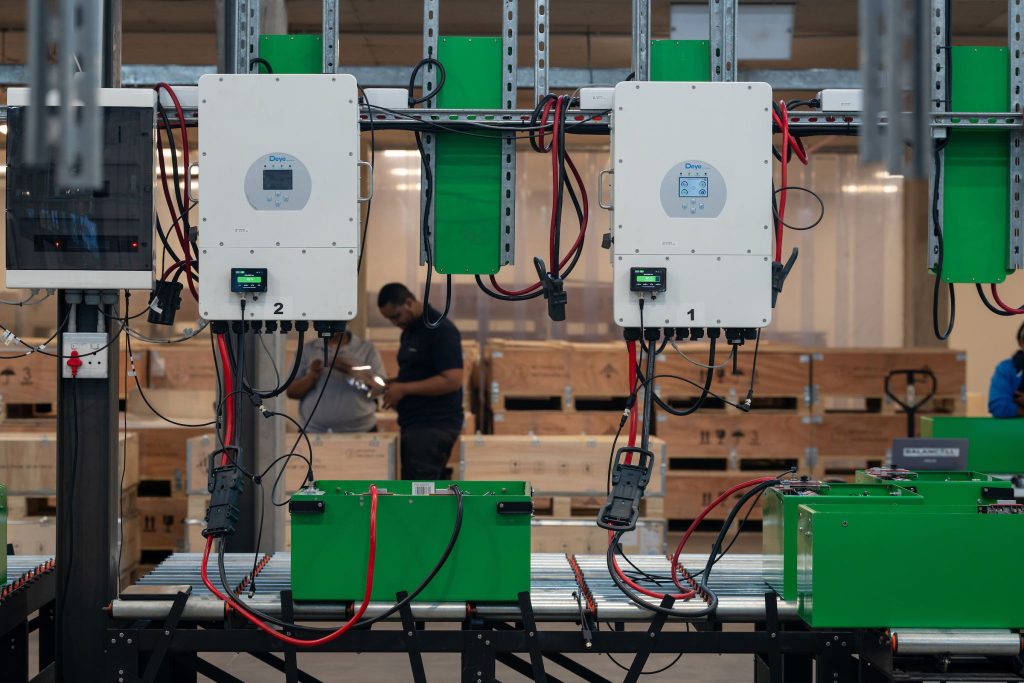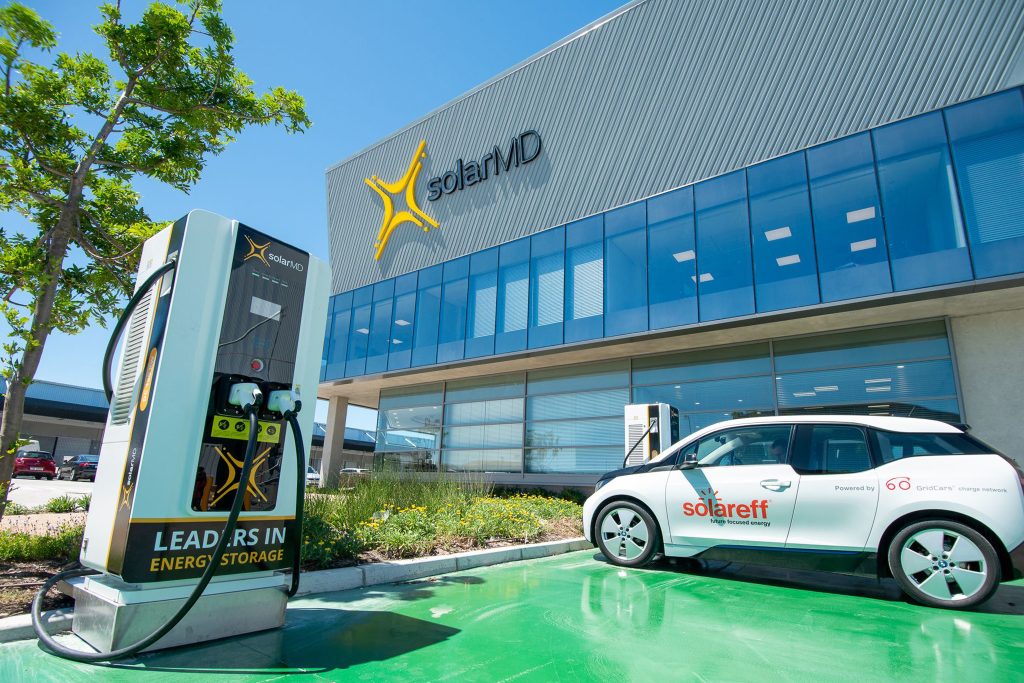South Africa has overtaken Morocco in the race to roll out the continent’s first operational gigafactories, with Solar MD’s recent launch of a 15,000-square-meter facility capable of building 3GWh of clean energy annually coming shortly after the November opening of Balancell’s Ndabeni facility.
South Africa has recently sped ahead of Morocco and other countries by launching two gigafactories in quick succession. According to one analyst, growing investor confidence is crucial to energy sufficiency and acceleration of the renewable energy transition. Morocco has recently become a beacon for battery investors, too.
Establishing these gigafactories marks a crucial step toward Africa’s energy independence, ensuring reliable access to clean energy storage — vital for overcoming the intermittency challenges of solar and wind.
A gigafactory is a large-scale facility that produces electric batteries with capacities measured in gigawatt hours (GWh). The term “giga” signifies the factory’s ability to manufacture batteries on a massive scale, typically exceeding one GWh.
According to Ian Musembi, an e-mobility and green energy analyst at Green Rising, an African green economy think tank, “the surge in demand for EVs, driven by environmental imperatives and technological advancements presents Africa with a golden opportunity.”
The existence of abundant battery materials in Africa makes the continent well suited to developing local manufacturing of batteries as countries across the globe look to establish battery-based power storage systems.
“With over 40% of the minerals and metals essential for this energy, the continent can position itself as a key player in the burgeoning battery and EV market,” Musembi explained.

A 2023 report by Li-Bridge showed the global demand for lithium batteries will grow more than five-fold by 2030. Another report in October 2024, this one by McKinsey, shows battery demand reaching 7.8 TWh by 2035, with China, the US, and Europe representing 80% of that demand.
In Africa, demand has intensified since 2023, with countries striving to optimize the use of electricity generated from renewable sources. The surging demand for battery storage in Africa is evident, for instance, in South Africa’s staggering US$1 billion lithium-ion battery imports in the first half of 2023 — a sharp rise from US$0.7 billion for all of 2022.
According to the International Renewable Energy Agency, IRENA, Continent-wide, solar and wind resources have grown substantially over the last decade to reach about 59GW (more than South Africa’s entire domestic generating capacity of 58 GW) as of 2022.
Zero Carbon Analytics, a research and analysis platform, reports a 900% global surge in wind energy capacity from 2012 to 2022. Meanwhile, solar energy has experienced remarkable growth, with projections indicating it accounted for 57% of global renewable energy investments between 2010 and 2021.
However, despite the immense potential of these sources, their intermittent nature poses a significant challenge to ensuring a stable and reliable power supply.
Battery energy storage systems (BESS) bridge this gap by providing the necessary infrastructure to store excess energy generated during peak production and release it when demand outstrips supply.
Understanding the potential for in-Africa manufacturing of batteries, investors have been investing in the industry, with much of that activity focused on South Africa and Morocco.
In November, another South Africa-based company, Balancell, opened a gigafactory in Ndabeni, Cape Town, with a production capacity of 1.7 GWh per year. Future expansion will increase this capacity to 3 GWh annually.
More gigafactories are in the pipeline in South Africa. Earlier this year, Afrivolt, a Cape Town-based energy company, unveiled plans to establish a massive lithium-ion cell factory at the Atlantis Special Economic Zone.
“We are in talks with various technical partners for the plant’s establishment,” Deshan Naidoo, the Managing Director of Afrivolt, told Engineering News in January, on plans to “produce anodes, cathodes, and lithium-ion batteries for stationary applications and, in the medium term, for electric vehicles.”

Before the Solar MD and Balancell facilities launch, the largest battery storage system in the country was the Kenhardt project, with a storage capacity of 140MW, built by Norwegian company Scatec, which began supplying electricity to the South African national grid late last year.
Morocco’s strategic location near Europe, on the other hand, coupled with its free trade agreements with the EU and US and its robust automotive sector, is positioning it as an attractive hub for battery manufacturers, especially those from China.
In May 2024, Hailiang and Shinzoom announced plans to build battery component plants near Tangier. BTR New Material Group and CNGR Advanced Material also intend to build battery material production facilities in Morocco.
More recently, in June 2024, Chinese battery manufacturer Gotion High-Tech, supported by German automaker Volkswagen, announced plans to invest US$1.3 billion in a 20GWh gigafactory in the country.
Other future agreements that could materialize in Morocco include South Korean company LG Chem Ltd’s partnership with China’s Huayou to establish an EV battery material plant. According to Reuters, the facility is scheduled for completion by 2026 and is expected to produce up to 50,000 tonnes of lithium-phosphate-iron cathode materials annually.
According to Africa Energy Capital, Morocco expects more EV battery investments with the government in talks to attract more electric battery manufacturers as it seeks to adapt to its growing automotive sector.
Africa can tap into initiatives like the BESS Consortium, launched at COP28 in 2022 by the Global Energy Alliance for People and Planet. The initiative aims to secure 5GW of Battery Energy Storage Systems by 2024. The consortium features a notable list of African countries, including Egypt, Ghana, Kenya, Malawi, Nigeria, and others as founding members.
“Without sufficient storage capacity, countries will be unable to add renewable energy to their grids at the scale needed to reduce emissions and create economic opportunity,” Rajiv Shah, President of The Rockefeller Foundation and Co-chair of the Global Leadership Council, noted during the launch of the BESS Consortium in 2023.
Credit: Boniface Orucho, Bird Story Agency


